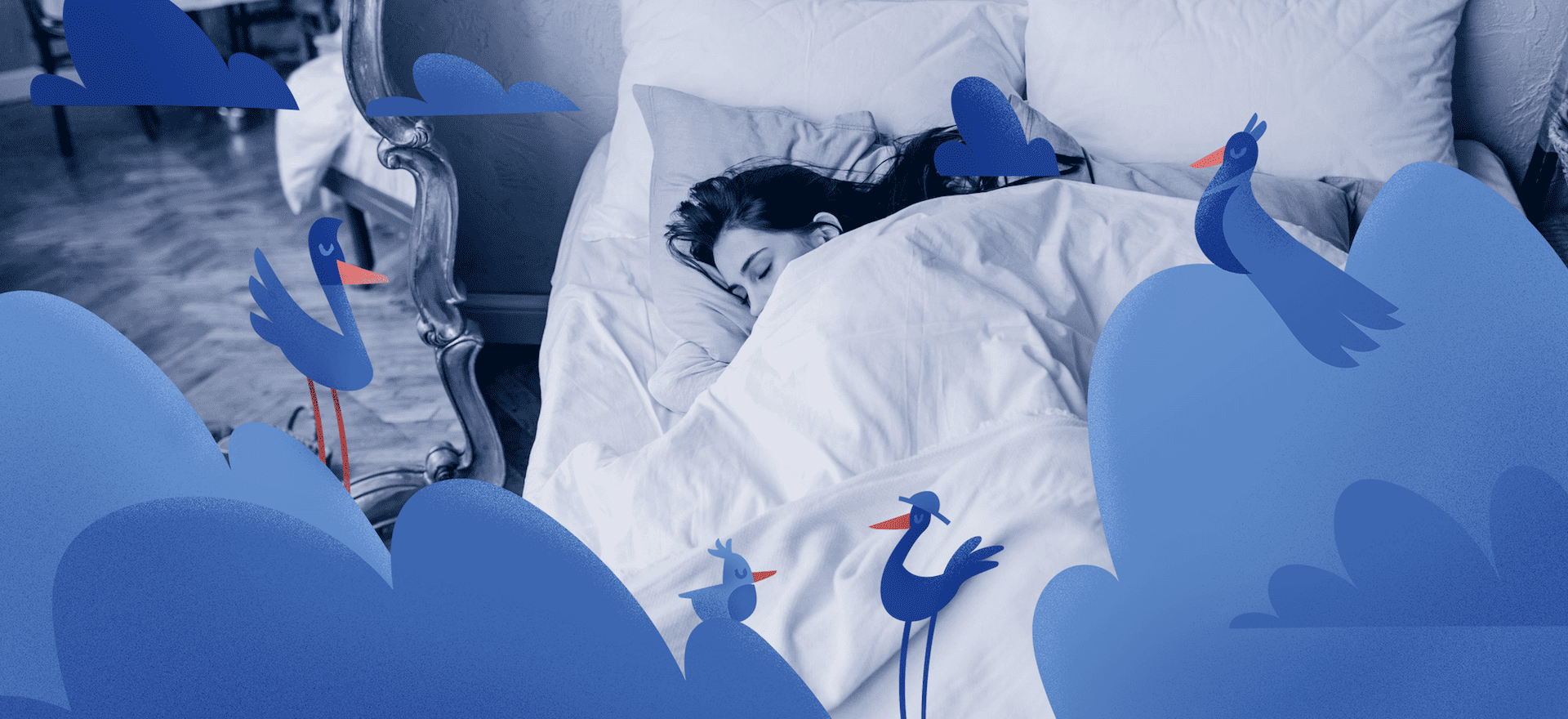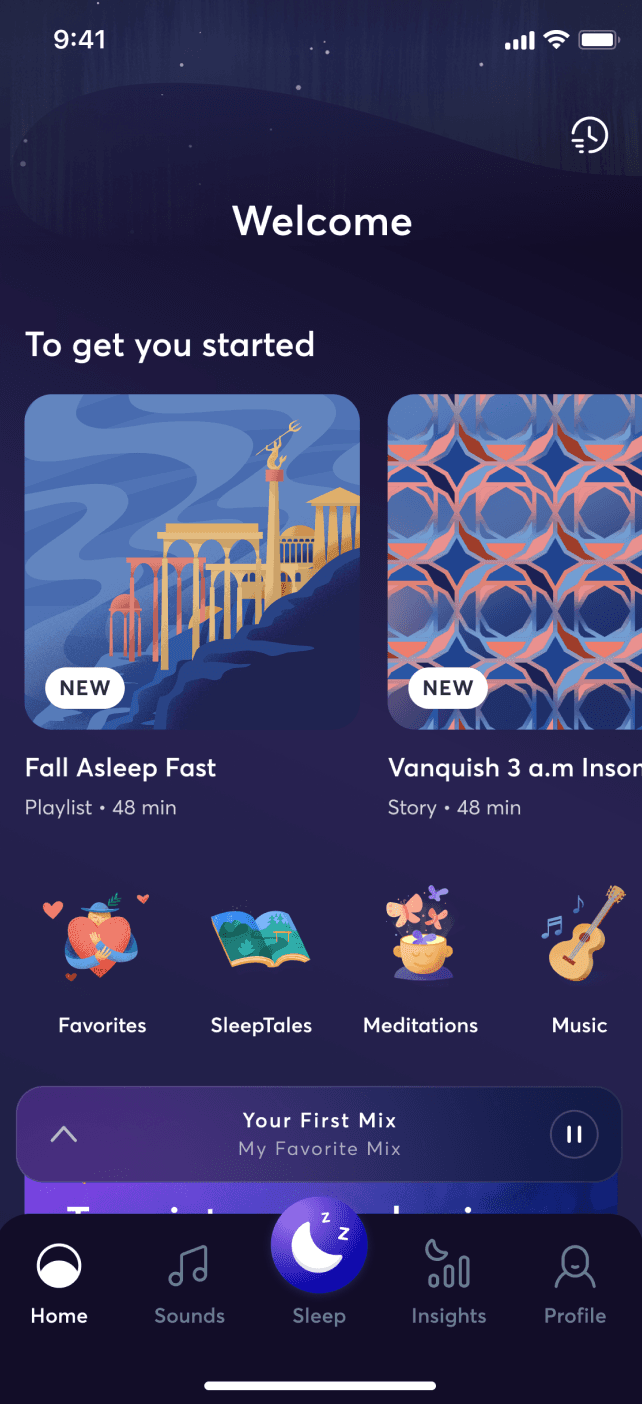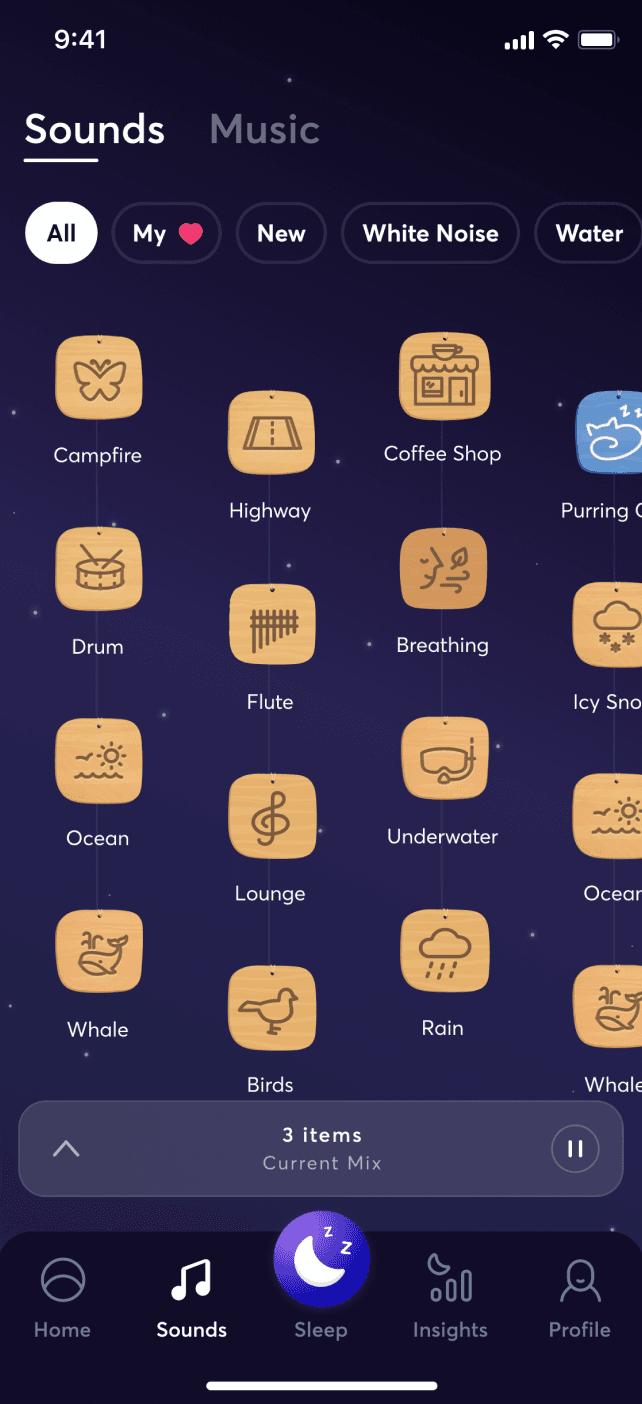
Adding Binaural Beats to Music
If you've never listened to binaural beats before, you're in for a real treat. Binaural beats are a type of audio that is said to have healing effects on the mind and body.
Adding these special sounds to your favorite music can supposedly create an immersive listening experience to achieve a more relaxed state.
Although there is some debate over whether or not binaural beats work, there's no harm in trying them out for yourself! Here's everything you need to know about binaural beats and how to use them.
What are Binaural Beats
Binaural beats are auditory illusions created when two different tone frequencies are played in each ear. The brain perceives these tones as a single, pulsing beat. This beat frequency is based on the difference between the two tones and can be used to alter the brainwave state.
For example, if a tone of 200 Hz is played in one ear and a tone of 210 Hz is played in the other, the brain will perceive a 10 Hz binaural beat.
Research has shown that binaural beats can influence the brainwave state, and they have been used for various purposes, including relaxation, meditation, and focus.
While more research is needed to understand the full potential of binaural beats, they offer a promising method for altering brainwave activity.
Learn more about Solfeggio Frecuencies
Why Add Binaural Beats to Music?
Binaural beats are noise signals that produce a frequency-following response in the brainwave activity of listeners. Through binaural beats, it is possible to change the brainwave frequency of listeners and induce various mental states.
For example, binaural beats can improve sleep quality, increase focus and concentration, or reduce stress and anxiety. Binaural beats can also improve physical performance and reduce pain perception. In addition, binaural beats are effective in treating migraines, tinnitus, and post-traumatic stress disorder.
There are many reasons why people choose to listen to music with binaural beats. Whether you are looking for a way to improve your mental and physical health or simply want to experience something new, binaural beats may be right for you.
Common Brain Waves That Affect Binaural Beats
Researchers in a 2018 study explain that there are five different categories of frequency patterns. Each frequency is linked with an outcome corresponding to different degrees of brainwave activity.
- Gamma (γ) pattern - Gamma waves have the highest frequencies of brain activity in the range of 30 - 50Hz. Gamma waves are associated with high-level cognitive functioning, such as perception, memory, and consciousness.
- Beta (β) pattern - These frequencies are slower than gamma waves (13-30Hz) but faster than alpha waves. They are associated with focus, concentration, alertness, and improved memory.
- Alpha (α) pattern - These frequencies are even slower than betas (8-13Hz) and are associated with relaxation and a sense of well-being. Listening to binaural beats in the alpha waves frequency has also been associated with stress reduction and increased learning capabilities.
- Theta (θ) pattern - The brain produces theta waves at stage 1 of sleep (4-7Hz) and during REM sleep. Theta waves are associated with improved memory, increased creativity, meditation, sleep and dreaming.
- Delta (δ) pattern - These frequencies are the slowest (0.5 - 4Hz) and are associated with deep sleep. The brain produces delta waves as you transition into deeper stages of sleep. Delta waves are also linked with reduced inflammation, improved healing, and access to the unconscious mind.
How to Add Binaural Beat to Music
The first thing you need to do is find a binaural beat track that you enjoy. You can find these online or in many different stores. Also, BetterSleep is a good app for finding a variety of binaural beats. Once you have found the track you want to use, all you need to do is download it and add it to your music library.
Then, simply select the track and play it with your favorite music. The two sounds will mix, and your brain will begin to entrain to the frequency of the binaural beat.
This process can help to improve focus and concentration, and it can also promote relaxation. Binaural beats are a powerful tool that can be used to improve cognitive function and promote well-being. They can be a valuable addition to any music collection when used correctly.


Are Binaural Beats Good for Meditation?
There is no denying that meditation can be a potent tool for promoting relaxation and self-awareness. And while there are many different techniques that can be used to facilitate meditation, some people find that binaural beats can be especially helpful.
Binaural beats are created when two different tones are played simultaneously, one in each ear. The brain then responds by creating a third tone, called the binaural beat, which is the difference between the two frequencies.
Research has shown that meditating while listening to binaural beats can help to improve focus and concentration and even promote feelings of deep relaxation. So if you're looking for a way to enhance your meditation practice, give binaural beats a try.
How to Use Binaural Beats
The most effective way to use binaural beats is to select an audio track with a carrier frequency that matches your current brainwave state. The two tones need less than 1000Hz for the binaural beats to work. For example, if you want to boost concentration and focus, choose an audio track with a carrier frequency in the beta range (14-30Hz).
If you want to relax and unwind, choose an audio track with a carrier frequency in the alpha range (8-13Hz). There are also audio tracks specifically designed for producing particular states, such as sleep or meditation. Once you have selected an appropriate audio track, simply put on your headphones or earbuds and press play.
You should start to notice the binaural beat within a few minutes. Some people find it helpful to focus their attention on the beat, while others simply allow it to flow into their awareness naturally. There is no wrong way to listen to binaural beats, just experiment and see what works best for you.
Sound must enter your ears for your brain's binaural beats to be heard. If you only hear the beats in one ear, the sound does not enter the other ear, and your brain cannot hear the binaural beats. Therefore, always ensure that the volume is at a level where you can still hear both tones in each ear before beginning your session.
Any Research to Support the Use of Binaural Beats?
Although most studies on the subject have been small, several studies suggest that binaural beats can positively affect anxiety, mood, and performance.
- A 2005 controlled study examining binaural beat audio found that binaural beats significantly reduced pre-operative anxiety in 100 people compared to similar audio without binaural tones and no audio. In the study, anxiety levels in people about to undergo surgery were reduced by 50% after listening to the binaural beat audio. The mechanism by which binaural beats may reduce anxiety is not fully understood, but it is thought that the illusion of a third tone helps to distract from worry and rumination.
- In a 2007 uncontrolled study, eight participants listened to a binaural beat CD with delta (1 to 4 Hz) beat frequencies for 60 days straight. Results from the research showed that listening to binaural beats for 60 days reduced anxiety in the participants and increased overall quality of life. Because the study was small, uncontrolled, and based on patient questionnaires to gather data, further studies will be required to verify these results.
- One study published in 2011 looked at the effect of binaural beats on 291 patients who were admitted to the emergency department at a hospital. The researchers found that exposure to audio with binaural beats was associated with significantly lower anxiety levels compared to those who listened to audio without binaural beats or no audio at all. While more research is needed to confirm these findings, the results of this study suggest that binaural beats may be a promising intervention for reducing anxiety levels.
- In 2019, a study investigated the combined effects of binaural beats and autonomous sensory meridian response (ASMR) on relaxation. The study found that combining binaural beats and ASMR was more beneficial than separately. Both binaural beats and ASMR-induced 6Hz correspond to theta band for inducing NREM sleep stage 1. The finding suggested that the combined effects could effectively relieve stress and improve sleep quality.
Any Side Effects of Using Binaural Effects
Despite being relatively new, binaural beats have become increasingly popular to promote relaxation and well-being. While some evidence suggests that binaural beats can be helpful, the research in this area is still quite limited.
Additionally, it's unclear if the effects of binaural beats diminish over time. Currently, the most common side effect of binaural beats is listener discomfort, which can be avoided by choosing tracks with additional sounds such as white noise.
Generally, long-term exposure to sound higher than 85 decibels is not advisable, and it could lead to hearing loss. Concerts, motors, police car sirens, snowblowers, and high-volume music on headphones can produce sound at 85dB or more. More research is needed to fully understand the benefits and risks of using binaural beats.
Bottom Line
Whether you're a skeptic or an enthusiast, no doubt adding binaural beats to music will create an interesting auditory phenomenon with lots of benefits. If you want to try them out yourself, be sure to do your research and find the right frequency for you.
Be patient – it may take some time for your brain to adjust! And as always, consult your physician before using any type of audio technology if you have a preexisting medical condition. And if you don't feel they work for you, that's okay too! There are plenty of other ways to relax or achieve a meditative state. Thanks for reading.






















